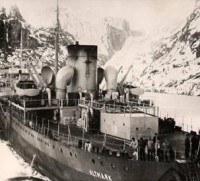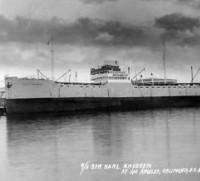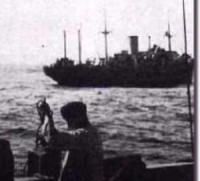- SHIPS TANKERS
2) SUPPLY SHIP BABITONGA
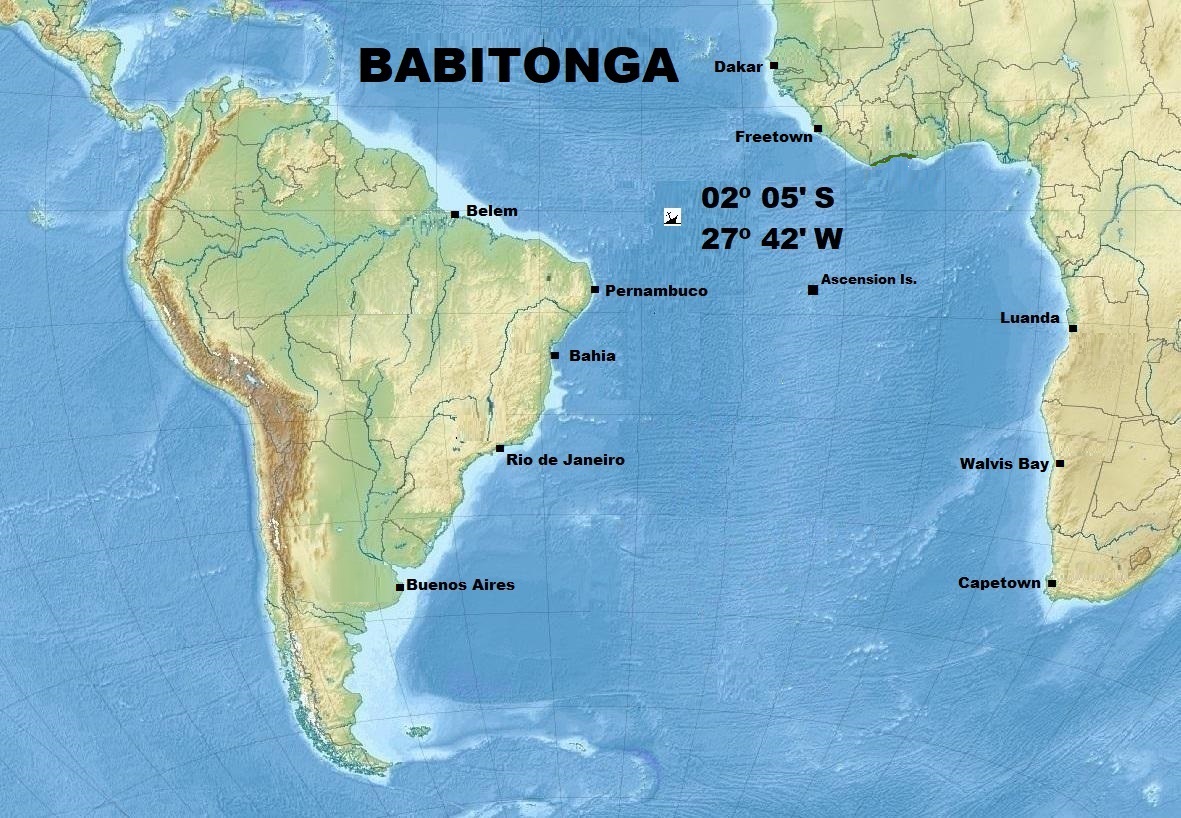
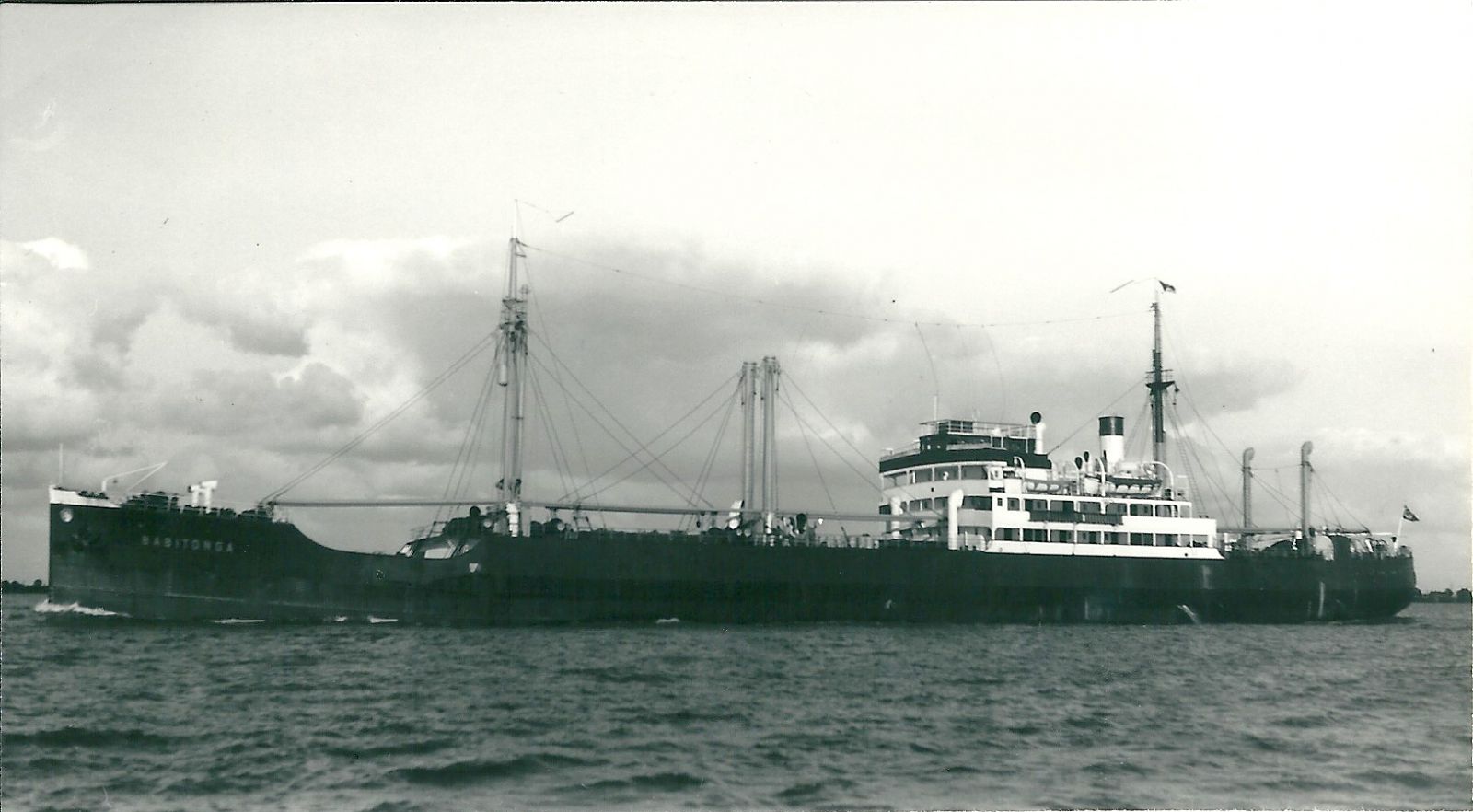
Picture provided by COASTERS & OTHER SHIPS Copyright BANGSBO MUSEUM
Built 1922
Length 376,3 ft.
Beam 51,10 ft.
Draught 24,0 ft.
Cargo: 986 tons of diesel oil
Route. Santos - Brest
Scuttled 21 JUN 41 to avoid capture by HMS London on pos. 02º05”S 27º42”W
41 crewmembers were rescued as POW
On 24 April 1941, Babitonga, which had been in Santos, Brazil since the outbreak of the war, ran with 1,120 t of diesel, food and water to support the German auxiliary cruiser Atlantis. It was after Konigsberg, Rio Grande and Dresden, the fourth and last merchant ship, which was sent from the stage in Brazil to supply the German auxiliary cruiser.
After supplying the Atlantis, Babitonga remained in the middle of May at the disposal of the auxiliary cruiser. On the way to a renewed meeting with the Atlantis she was discovered and shot at by the British cruiser London. The Babitonga (ex Osiris) in order to avoid capture on June 21, 1941, was scuttled on the position 02 ° 05 '00 "S, 27 ° 42' 00" W.
On 7 July 1941 it was learned that the German ship Babitonga had been intercepted and destroyed by the British Cruiser London in the South Atlantic some 380 miles east of Pernambuco. Following an investigation made by Port Authority at Recife, documents demonstrated that the German ship used the name JAPARA and flew the Dutch flag, it had received in its tanks 986 tons of fuel oil, and 850 represented a surplus, which was intended for the supply of German raiders. According to the Brazilian Navy Ministry, the Government itself has acceded to a request from an important politician to provide the excessive volume of oil requested.
The MS Babitonga, which had previously been on the freight and passenger journey between Hamburg and the east coast of South America, had reached its final port of Santos on August 18, 1939 and was still there when the war broke out. On September 4th it was captured by the Navy as a supply ship and from then on Directed from Berlin. The crew was gradually reduced to 41 men and was occupied with conservation work and cleaning the ship's bottom. The engine crew overhauled the engine. During their free time, football games were played against the German clubs in Santos and São Paulo as well as against other ship teams.
The Babitonga remained in Santos until April 25, 1941. Now for the first time she received the order to leave from the naval command. It was supposed to supply the merchant ship 16 Atlantis (Kapt. zur Zee Rogge) with fuel, fresh water and provisions. However, this task could only be partially solved. The takeover of the supplies had to be canceled very quickly and a new meeting point agreed upon. On the march to there, the Babitonga was stopped at 02º 05'S, 27º 42' W, near the St. Paul rocks, on June 21, 1941 by the British cruiser London and had to scuttle herself. The crew was taken over by the London and taken to a prison camp near Freetown in Sierra Leone. However, since the Babitonga no longer sailed under the merchant flag, but instead flew the imperial service flag, its fate does not fit into this framework.
In 1939, the town of São Francisco do Sul had six thousand inhabitants who made their living mainly from fishing or ran a few rice mills. There was no industry here and in the harbor there were only a few berths on the roadstead and a few, although not connected, quays for smaller seagoing vessels on the bank side. So this port had little importance for shipping. More important than São Francisco do Sul was the town of Joinville, which had around 12,000 inhabitants and was a German stronghold. The German colony there paid around 8,500 people in 1939. It was located about fifteen nautical miles upstream on the Rio Cachoeira and could be reached from São Francisco in around three hours by steamboat.
Joinville had a lot of industry, such as cabinet makers, brickworks, nail factories, machine shops, breweries, tanneries and seemed almost like a small German town with its beautiful, wide and well-kept streets and pretty garden houses. The schools, the churches and the hospital here were also German. It is obvious that German ships only called at São Francisco do Sul because of the nearby Joinville. First and foremost, of course, it was the Hamburg Sud and also the Hamburg-America Line, whose ships could always be found here. Mate, rice, wire nails, furniture, lime, boards and the liquor made in the sugar industry, cachaça, were exported. During the crisis in 1939, there was only one German ship in Sao Francisco do Sul, the MS Pernambuco under Captain Paul Friedrich, which was able to reach home safely.
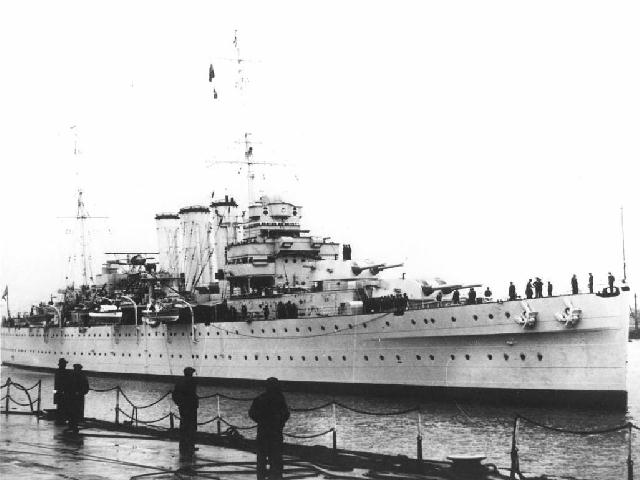
HMS LONDON. The Royal Navy exerted a tight grip in the South Atlantic sea lanes turning the task of German merchants in break out a very dangerous one. Only few ships managed to pass unscathed, but just to be caught in the next run.
Photo. http://www.naval-history.net/Photo06caLondon1NP.jpg
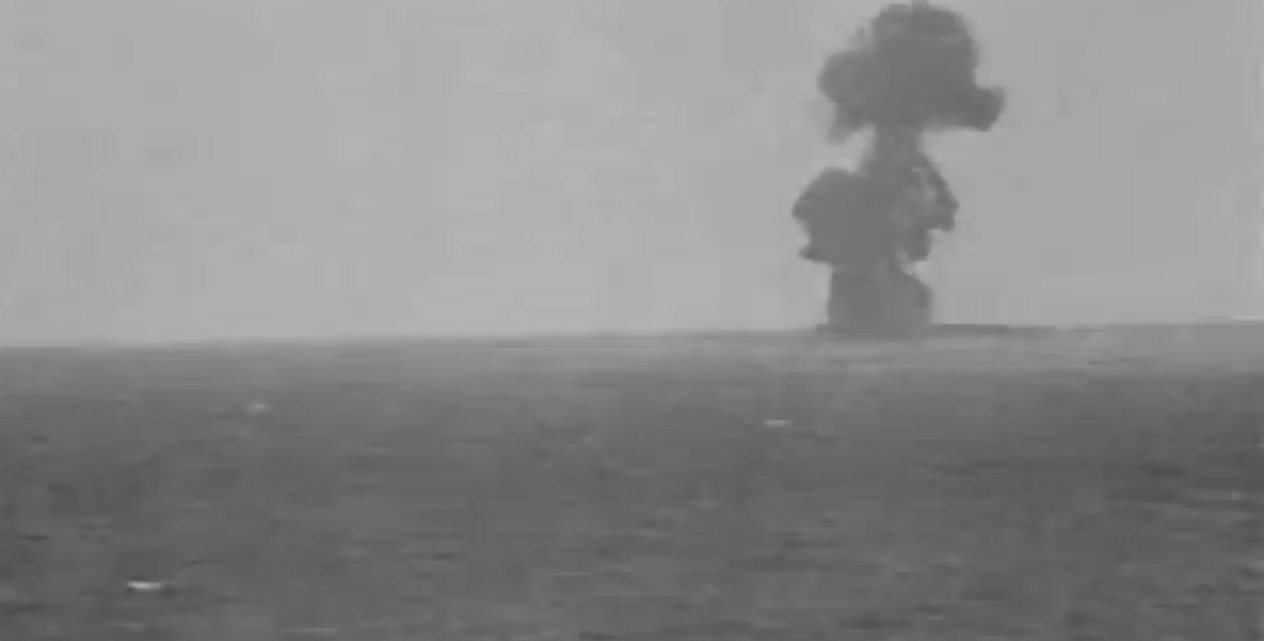
The moment when HMS London fired her guns against Babitonga. Soon she went down
Chronology:
24 April 1941.
Babitonga, which had been in Santos, Brazil since the outbreak of the war, ran with 1,120 t of diesel, food and water to support the German auxiliary cruiser Atlantis. It was after Konigsberg, Rio Grande and Dresden, the fourth and last merchant ship, which was sent from the stage in Brazil to supply the German auxiliary cruiser.
June 21 1941.
After supplying the Atlantis, Babitonga remained in the middle of May at the disposal of the auxiliary cruiser. On the way to a renewed meeting with the Atlantis she was discovered and shot at by the British cruiser London. The Babitonga (ex Osiris) in order to avoid capture on June 21, 1941, was scuttled on the position 02 ° 05 '00 "S, 27 ° 42' 00" W.
